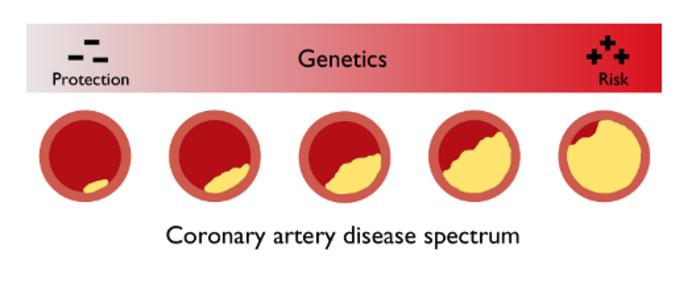In a new study, researchers at the Icahn School of Medicine at Mount Sinai have identified coding variants in 17 genes that provide new insights into the molecular basis of coronary artery disease (CAD). The team used an advanced artificial intelligence tool to make these discoveries. Their findings are published in Nature Genetics.
The study addresses challenges over the past decade in identifying rare coding variants associated with CAD using traditional methods that rely on diagnosed cases and controls. The findings highlight genetic factors influencing heart disease, opening avenues for targeted treatments and personalised cardiovascular care.
The researchers employed an in silico, or computer-derived, score for coronary artery disease (ISCAD) to holistically represent CAD. The ISCAD score integrates hundreds of clinical features from electronic health records, including vital signs, lab results, medications, symptoms, and diagnoses. To develop the score, machine learning models were trained on the electronic health records of 604,914 individuals from the UK Biobank, All of Us Research Program, and BioMe Biobank in a comprehensive meta-analysis.
The score was tested for associations with rare and ultra-rare coding variants in the exome sequences of these individuals. Further investigation into the identified genes explored their roles in CAD risk factors, clinical manifestations of CAD, and their connections with CAD status in large-scale genome-wide association studies, among other factors.
The findings help understand how these 17 genes are involved in coronary artery disease. Some of these genes are already known to influence heart disease development, while others have never been linked to it before. The study shows how machine learning tools can uncover genetic insights that traditional methods might miss when comparing cases and controls. This could lead to new ways to identify biological mechanisms of heart disease or gene targets for treatment.

Rare coding variants, though present in a small percentage of individuals, can significantly impact disease risk or susceptibility. Therefore, studying these variants is crucial for understanding the genetic basis of diseases and can inform therapeutic targets.
The investigators plan to further examine the role of the identified genes in CAD biology and explore potential applications of machine learning in the genetic study of other complex diseases. This ongoing effort aims to advance understanding disease mechanisms, discover new treatments, and improve patient outcomes.
Source: Mount Sinai School of Medicine
Image Credit: Ron Do, PhD, and Ben Omega Petrazzini, BS, at Icahn Mount Sinai







